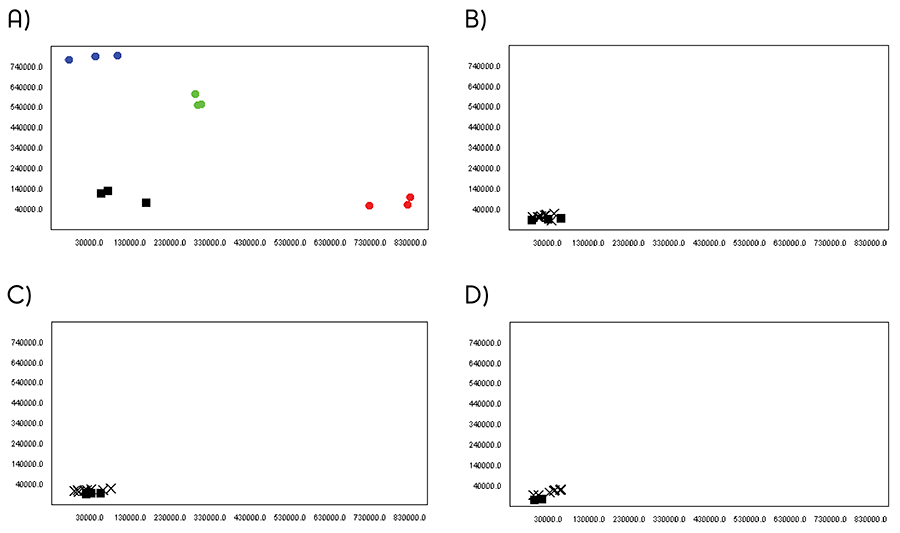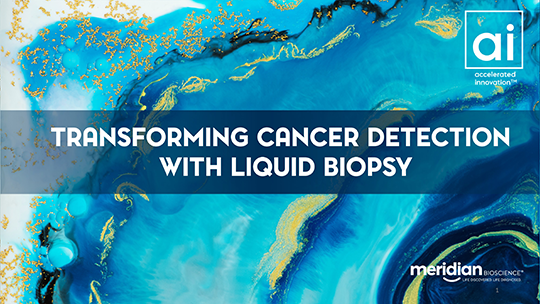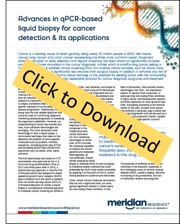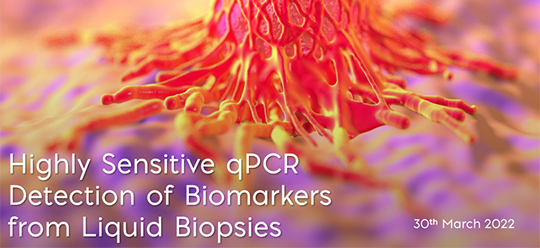Solutions for
Cancer Detection
Meridian’s latest advancement in isothermal amplification enables you to re-envision your LAMP point-of-care diagnostics! Simplify assay development, speed up turnaround time and deliver highly specific and sensitive amplification without DNA or RNA extraction.
Over the past decade, isothermal PCR such as HCA, MDA and loop-mediated isothermal amplification (LAMP) has played an increasingly important role in point-of-care (POC) diagnostics. It offers similar sensitivity and specificity to qPCR with several advantages in terms of speed, reduced costs, and compatibility with battery-powered devices, making it ideal for field-deployable diagnostics in resource-limited settings.
Early Cancer Detection
Quisque ullamcorper enim eros, vel faucibus purus mattis non. Fusce risus tellus, gravida vitae turpis vitae, euismod congue dolor. Morbi ac justo pellentesque, elementum metus et, interdum ipsum.
Monitoring response
Aenean maximus lobortis felis, quis pulvinar odio imperdiet sed. Donec eu viverra elit, sed rhoncus libero. Maecenas dictum auctor ligula vitae sollicitudin. Pellentesque a tincidunt tellus. Nam dapibus tortor nec pharetra tempor.
Minimal Residual Disease
Quisque interdum vulputate neque eu aliquet. Ut sed fringilla mauris. Vivamus aliquam posuere leo, non maximus justo egestas eget.
qPCR VS NGS
![]()
qPCR
| Pros: |
| Cons: |
![]()
NGS
| Pros: |
| Cons: |
Specimen-specific solution for ultra-sensitive qPCR
Meridian’s Specimen-specific™ molecular master mixes are ultra-sensitive and can accurately detect single-digit copy numbers of targets such as ctDNA. In addition, the mixes are highly inhibitor tolerant and are designed to perform with crude blood, saliva, urine or stool samples, removing the need for DNA or RNA extraction.


NGS Solution
Advances in Next-generation sequencing (NGS)
are improving approaches to develop rapid, accurate, detection, treatment, and routine monitoring of cancer. The use of NGS for developing new solutions for applications such as the detection and monitoring of minimal residual disease (MRD), methylation or exome profiling for clinical oncology research and liquid biopsy based approaches.
Resources to Learn More

Watch a Panel Discussion
Find out the current status of liquid biopsy for cancer screening, as well as how modern technologies are changing the landscape of cancer detection and CDx.

Read a White Paper
Lead more about the advances in qPCR-based liquid biopsy for cancer detection & its applications by reading the white paper.

Webinar On-Demand
Gain a deeper understanding of how Meridian’s new advances in inhibitor tolerant qPCR based liquid biopsy, that reduces the cost and complexity of these assays, while enabling ultra-sensitive detection from very low concentration cancer markers.